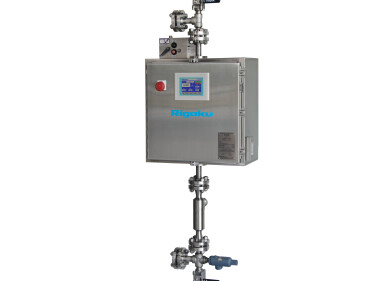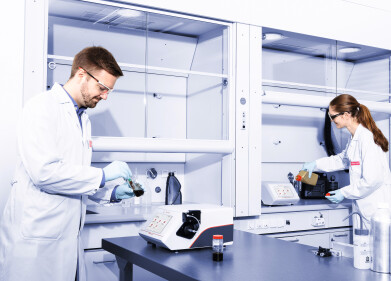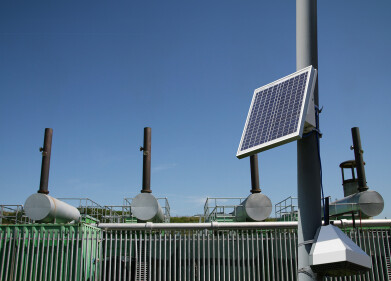Measurement and Testing
Mass Spectrometer Proven Effective and Accurate in Determining Flare Gas Heat Values
Oct 11 2016
By January 2019, petroleum refiners will need to comply with new US Environmental Protection Agency flare stack combustion rules that includes additional monitoring and analysis requirements, making it necessary for operators to quickly and accurately determine the heat values of flare stack gases.
Refiners are vetting various technologies for analysing and monitoring flare stack gases to narrow the field of applicable and reliable technologies ahead of that deadline. Among them is mass spectrometry as utilised by the ProMaxion quadrupole process mass spectrometer from AMETEK Process Instruments (USA).
The capabilities of the ProMaxion versus competitive technologies already were field demonstrated by a leading Southern California refinery that needed to meet similar regulations that were promulgated by the California Air Quality Management Board. That field experience demonstrated that the ProMaxion offered more detailed and relevant data faster than gas chromatography and that it provided BTU numbers that were the equivalent of those provided by a calorimeter, but with greater specificity.
The ProMaxion had the speed and specificity necessary to accurately calculate the appropriate amount of make-up gas for complete combustion. The ProMaxion was set up to monitor and quantify 16 components in the flare gas stream, including H2, N2, methane, ethane, propane, n-butane, i-butane and pentanes among others.
Taking advantage of its analysis speed, the ProMaxion was able to obtain a calculation in less than 10 seconds, which was more than 10 times faster than using a chromatograph.
By modifying the standard process mass spectrometry method of analysis slightly, the
ProMaxion provided fast and accurate BTU content measurement even when
confronted with a widely changing flare gas stream. The analysis technique allowed for
a reduction in calibration complexity, while still providing data that fell comfortably within
the specified error band.
The ProMaxion used ASTM method D 2650-04 (Standard Test Method for Chemical Composition of Gases by Mass Spectrometry) to calculate the concentrations of individual gas components. The resulting data was then converted into the flare gas heat value as described in ASTM D3588-98 (Standard Practice for Calculating Heat Value, Compressibility Factor and Relative Density of Gaseous Fuels).
Proprietary software provides for easy set-up, operation and calibration, combined with advanced alarm and automation capabilities. The ProMaxion’s modular design and selfdiagnostic capabilities ensure ease of maintenance. The instrument is housed in a
stainless steel enclosure (general purpose or C1, D2 area classification).
Digital Edition
PIN 25.5 Oct/Nov 2024
November 2024
Analytical Instrumentation - Picturing Viscosity – How Can a Viscometer or a Rheometer Benefit You? - Sustainable Grease Formulations: Evaluating Key Performance Parameters and Testing Method...
View all digital editions
Events
Nov 26 2024 Paris, France
Nov 26 2024 Amsterdam, Netherlands
Nov 27 2024 Istanbul, Turkey
Biogas Convention & Trade Fair 2024
Nov 27 2024 Hanover, Germany
Dec 03 2024 Dusseldorf, Germany



















